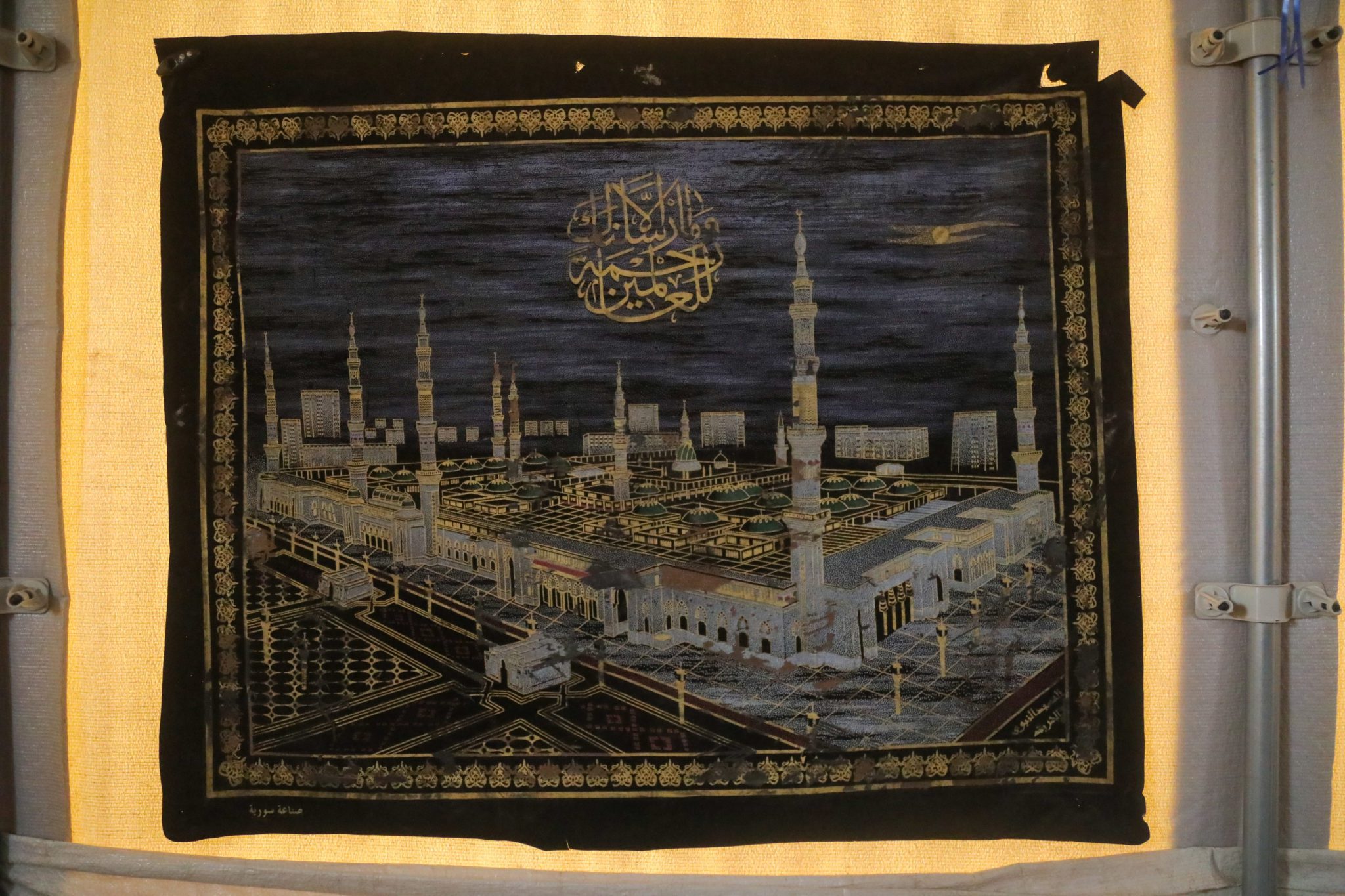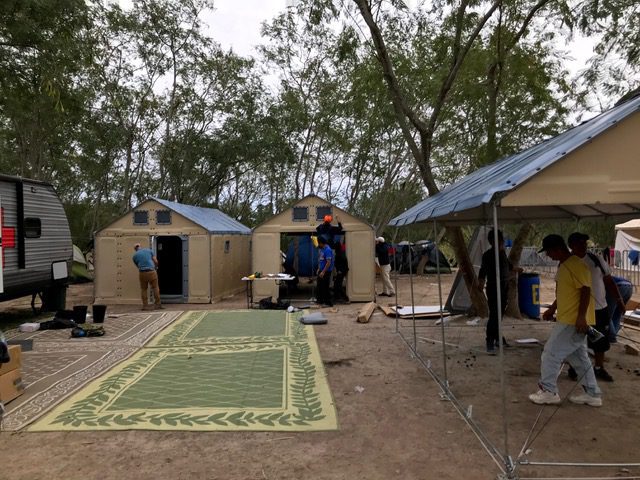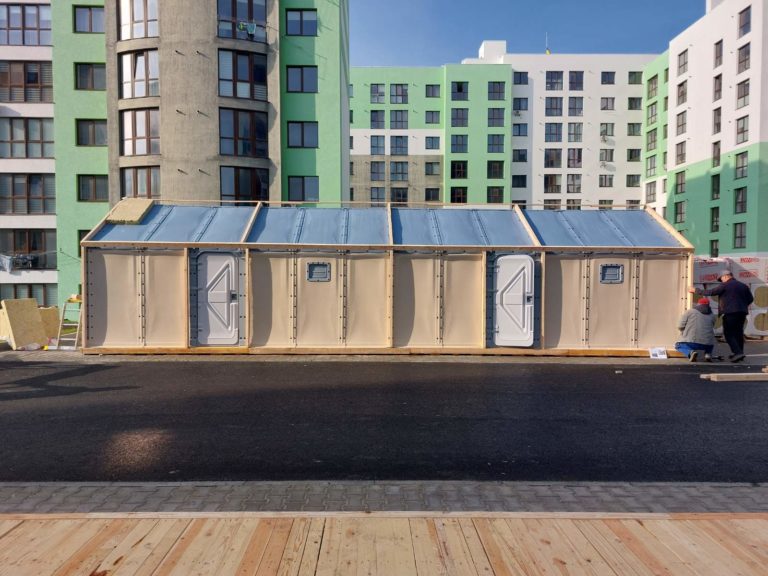Imagine living in a time and place where you are forced to flee your home. You’ve lost your home, belongings, and maybe some of the people you love. This is the tragic reality for 100 million people around the world.
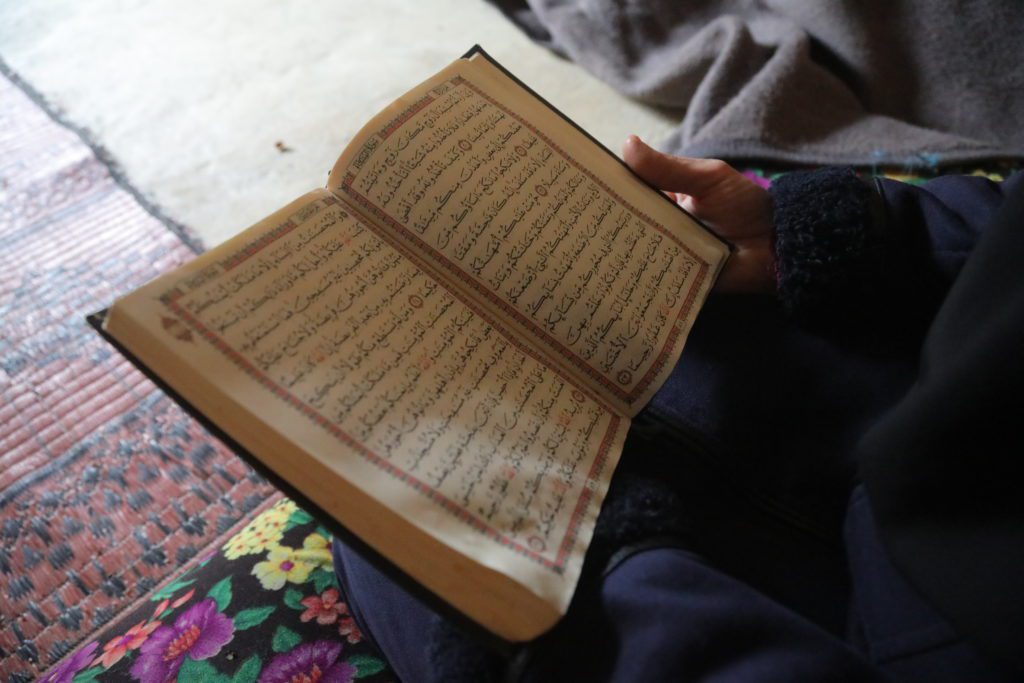
For many who’ve lost their material possessions, all they have left is their faith. For many living in displacement, faith is an important device to recover from trauma. After eleven years of war, there are 13 million displaced people living in Syria. Historically, Syria has been a patchwork of different communities coexisting peacefully, ultimately leading to the modern state of Syria. Today, the majority of Syrians identify with some form of Sunni Islam, but the country is still home to an array of ethnicities and religious adherences.
While so many in Syria are displaced, a shelter provides the space to practice and preserve religious ritual. In Islam, there are Five Pillars, acting as core beliefs and principles that guide Muslim communities around the world: Profession of Faith (shahada), Prayer (salat), Alms (zakat), Fasting (sawm) and Pilgrimage (hajj).
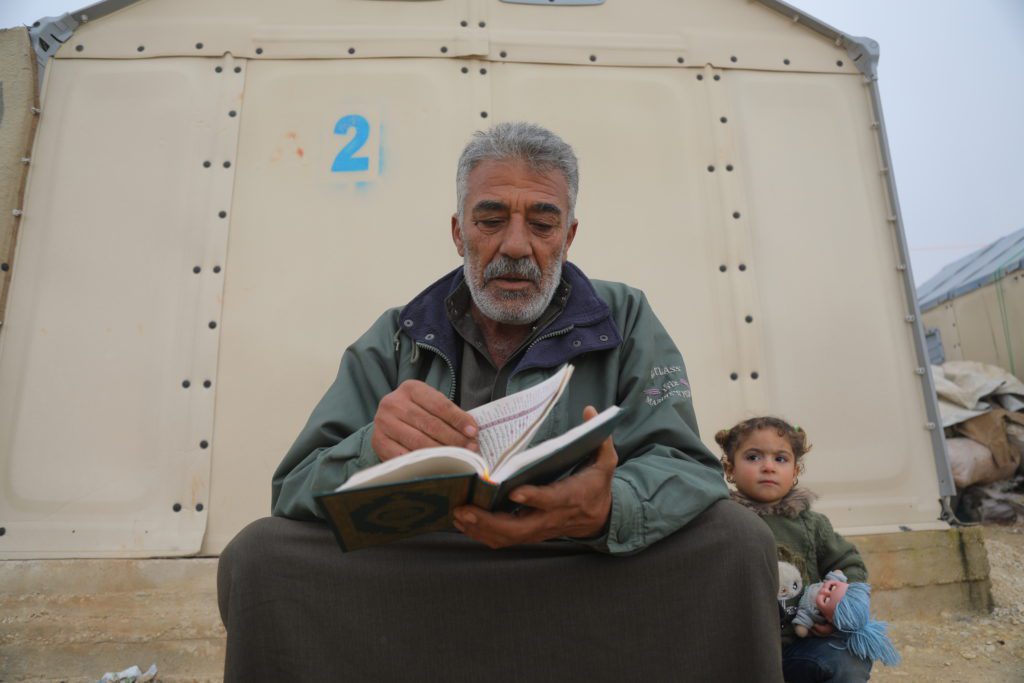
For many Muslims, prayer is an active and ongoing part of everyday life, no matter where it takes place, but a safe and dignified shelter helps to make it a cleaner, more peaceful, and more meaningful experience. For Aamah al-Salloum, a shelter like the RHU has given her the practicality to perform her daily prayers. Displaced from the eastern countryside of Saraqib, Aamah lived in tents until she moved into her RHU at the Maram camp in Idlib, northwest Syria.
“Faith is important to me because we Muslims have been raised on faith and instinct, and from the religion of our master Muhammad, peace and blessings be upon him, we must be believers to enter paradise in the afterlife.”
Aamah al-Salloum, resident of the Maram camp in Idlib, northwest Syria
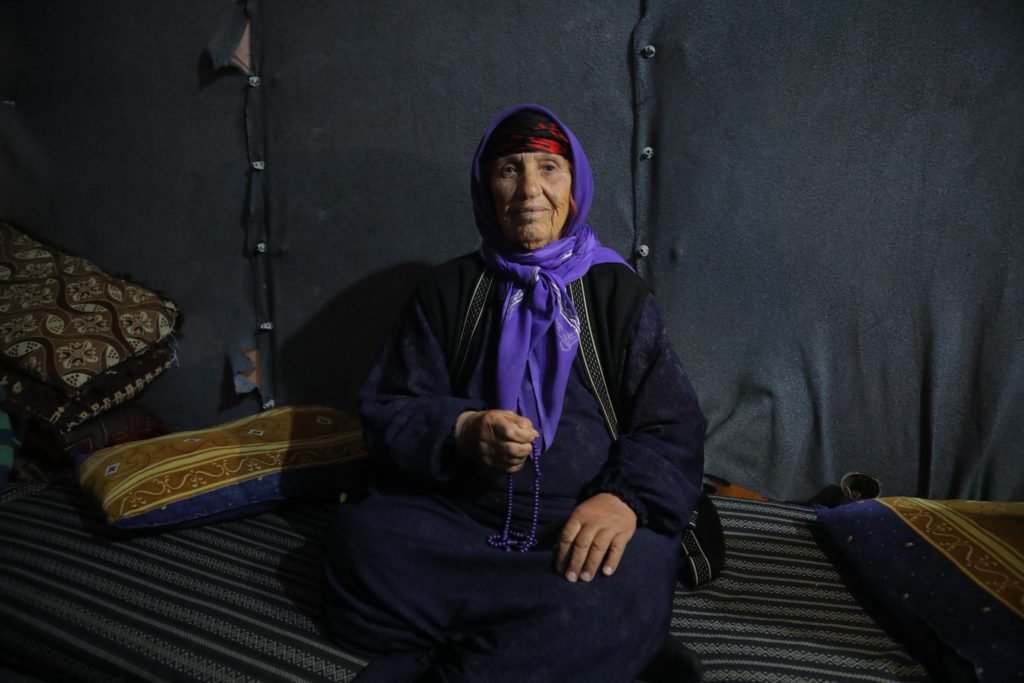
Still recovering from the trauma of displacement, Aamah says that her life in the Maram camp provides her with a sense of safety as a woman, and the necessity of a hygienic environment compared to fabric tents; while her RHU allows enough height for her to pray while standing.
Faith and prayer is also an integral part of everyday life for Zakariya al-Sheikh. Living in the same Maram camp in northwest Syria, Zakariya lived in the Tal Debs village, east of the city of Maarat al-Numan before he was forced to flee to seek safety. Now living in an RHU, Zakariya spoke with appreciation at how his shelter allows him to pray, and read the Qu’ran with privacy and comfort.
Faith is a blessing from God, and it is the most important thing in human life because it is the way to heaven, the abode of eternity.”
Zakariya al-Sheikh, resident of the Maram camp in Idlib, northwest Syria
A significant improvement from the tents in which he lived before moving to the Maram camp, Zakariya is able to perform ablution, the Islamic ritual of cleansing parts of the body, with access to sanitation and clean drinking water. Zakariya’s RHU bears a closer resemblance to a home, like the one he left behind, with adornments like a tapestry of Medina, to remind him of his strong faith.
The privacy of a shelter is also critical in preserving religious practice in the winter, when temperatures become increasingly frigid every year. Maram installed heating devices in many family RHUs, ensuring warmth in the colder months. But for Zakariya, even the littlest details like a small solar-powered lamp helps him read his Qu’ran when the sun is limited in the winter.
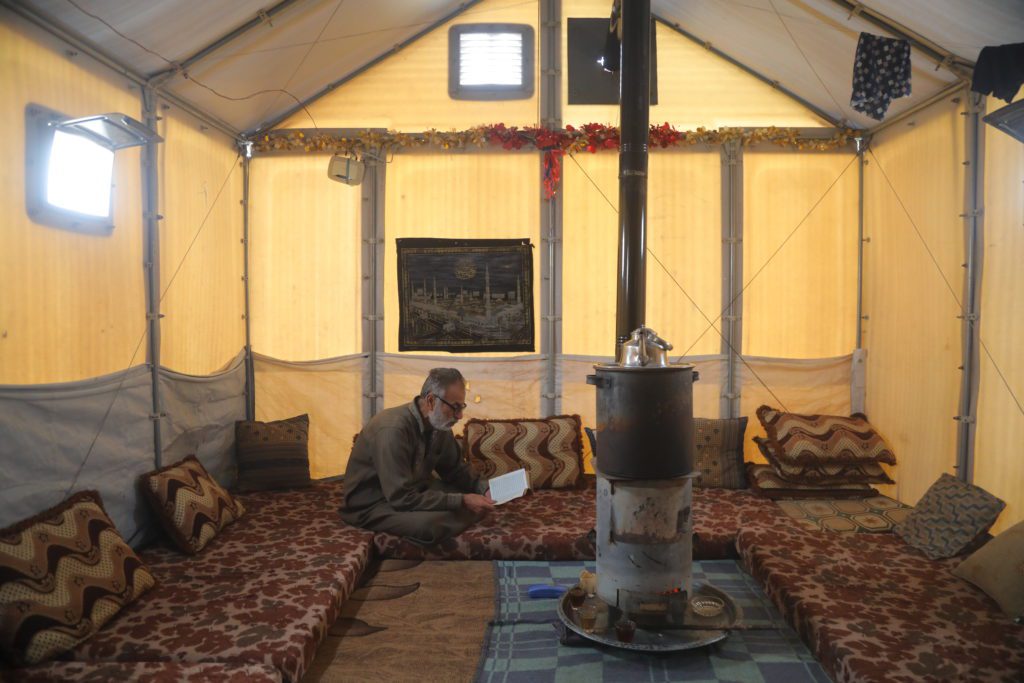
“This shelter also helps us to read the Qur’an because there is a little light in it.”
Zakariya al-Sheikh
At the heart of any religion is the practice of community bonding, looking after one another, and sharing in blessings and celebrations. For both Aamah and Zakariya, a celebration does not only come once or twice a year like Eid al-Fitr and Eid al-Adha. Every Friday prayer is cause for celebration, when both Aamah and Zakariya reunite with their families for picnics, outings and laughter, creating new memories as they look forward to their lives outside of displacement.
“My favourite holidays are Eid al-Fitr and Eid al-Adha; in addition to that Friday, we get together with the family and see the laughter on their faces.”
Aamah al-Salloum
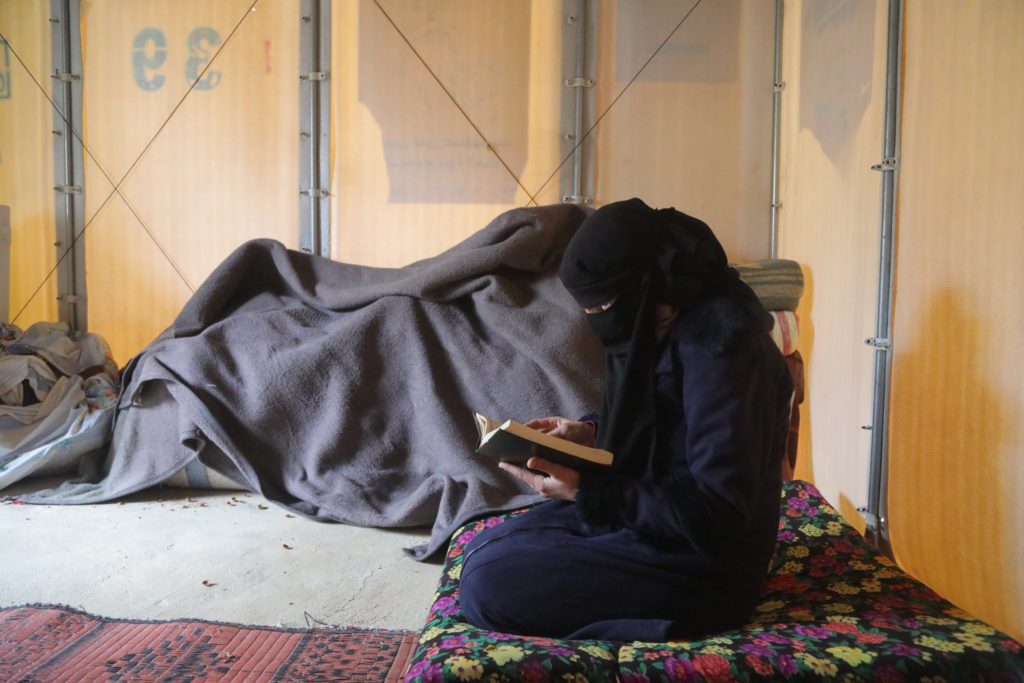
Story available in Arabic here.

